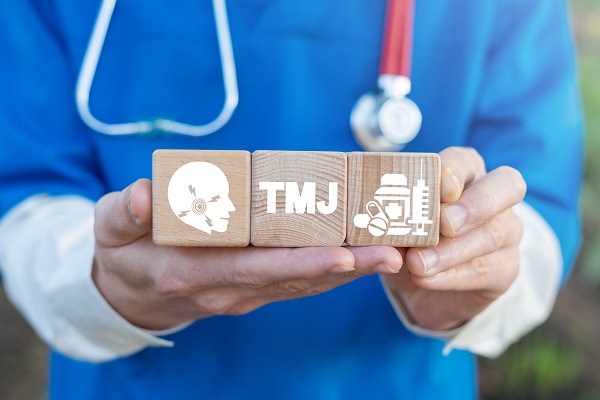How to Find Long-term Relief From TMJ Disorder

Temporomandibular joint and muscle disorders, also commonly referred to as TMJ, are a group of conditions that cause pain as well as dysfunction in the jaw joint and the muscles that control the movement of the jaw. Although it is not fully known how many people have TMJ disorders, it is estimated that millions of Americans are affected. Some of the symptoms associated with the disorders include pain in the jaw joints as well as muscles, headaches, earaches and limited ability to open the mouth. Patients may also complain of grating or clicking sounds in the joint and may feel pain when opening and closing the mouth. If you have symptoms associated with TMJ problems, you should consult a dentist as soon as possible.
TMJ treatment
There is no particular cure for TMJ disorders, but there is a variety of treatments that can help reduce the symptoms significantly. Depending on the diagnosis, treatment may range from conservative medical and dental care to surgery. If non-surgical treatment is not successful or if there is clear joint damage, surgery may be recommended. In some cases, surgery can provide long-term relief from TMJ disorders.
Surgery
In more extreme cases, a health care practitioner may recommend surgery for the treatment of pain and restricted movement. Surgical treatments are often controversial and irreversible, so they should only be recommended when completely necessary. Surgery may involve either the repair of damaged tissue by a surgical approach or arthroscopy.
Sometimes, arthroscopic surgery can be effective for treating some types of TMJ disorders as open-joint surgery. A cannula or small thin tube can be placed into the joint space. An arthroscope will then be inserted and small surgical instruments will be used for surgery. Although TMJ arthroscopy has minimal risks and complications compared to open-joint surgery, it still has some limitations.
If a person’s jaw pain does not go away with more-conservative treatments and the problem is caused by a structural issue in the joint, a dentist or doctor may suggest open-joint surgery or arthrotomy to replace or repair the joint. But open-joint surgery involves more risks than other procedures. Taking this into account, it should be considered carefully. A person should weigh the pros and cons before making a decision.
Takeaway
When other methods of treating TMJ disorders do not work, a doctor may recommend surgical procedures. Surgery can help treat pain and restricted movement. A TMJ disorder can be caused due to damage to the joint, to the muscles surrounding the jaw or sometimes by another condition. Surgery is often suggested when the actual joint has a problem.
If surgery is recommended, you should make sure that your doctor or dentist explains to you the reasons for the treatment. You should also be aware of the risks involved as well as other treatment options that may be available. It is always ideal to seek professional medical advice when it comes to any treatment. If you want to find out more about long-term treatment options for TMJ disorder, talk to your dentist.
Check out what others are saying about our dental services on Yelp: TMJ in Rockville, MD.
Recent Posts
You may not think much about TMJ disorder unless a dentist diagnoses you with it. This is a serious condition that can cause much pain and discomfort. Untreated, this disorder can make it difficult to chew and even speak. Instead of suffering and being in agony, you can speak to your dentist. Fortunately, relief is…
TMJ disorder is a common issue that can result from teeth grinding and other dental concerns. Most instances are minor, but TMJ that is left untreated can linger or worsen into a more serious issue. Many instances of jaw pain are caused by TMJ, and it is helpful to understand the symptoms of TMJ and…
General dentistry is responsible for addressing all routine things relating to the teeth, including damage that occurs. Teeth become damaged as a result of many things, such as injury, accidents, natural wear and tear, or cavities. Whatever the reasoning may be for a damaged tooth, there are a lot of treatment options available in general…
The convenience of CEREC® crowns makes them a popular option for patients with moderate to severe dental problems. CEREC design/manufacture systems allow dentists to create same-day restorations as their patients wait.In addition to quick treatment, same-day CEREC crowns are just as durable as those made in a dental lab. Better yet, the patient gets to…


